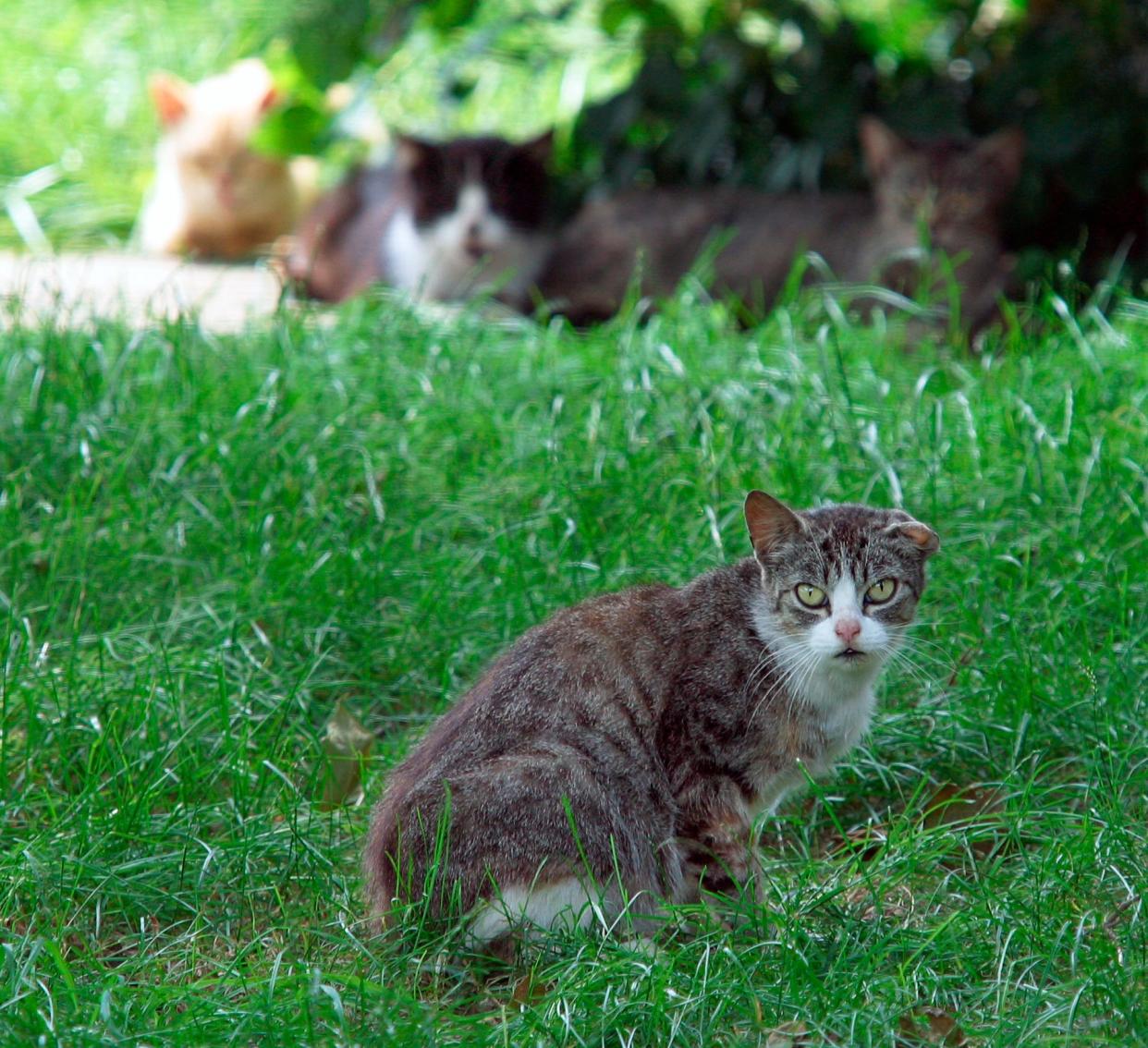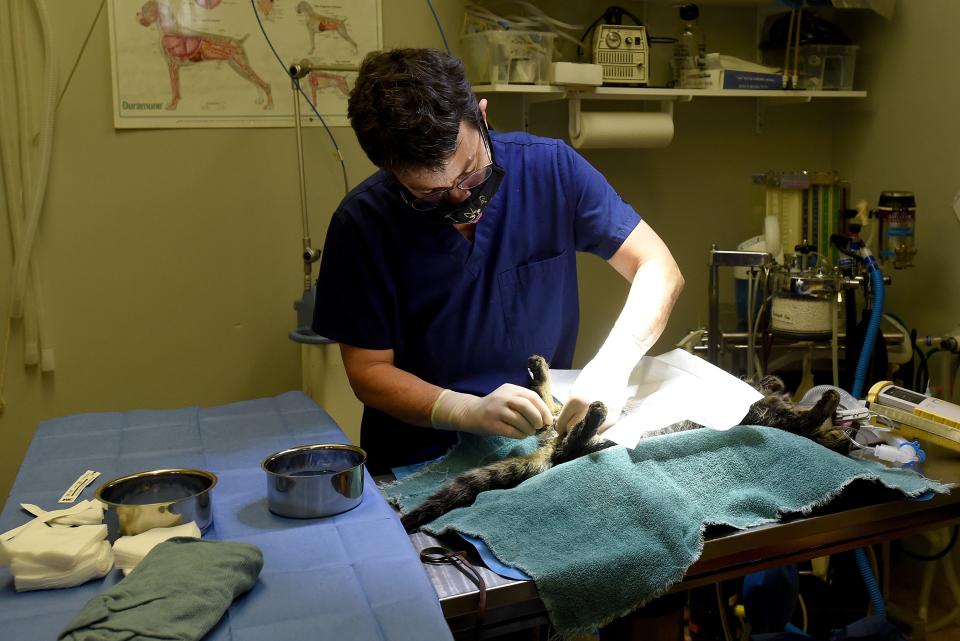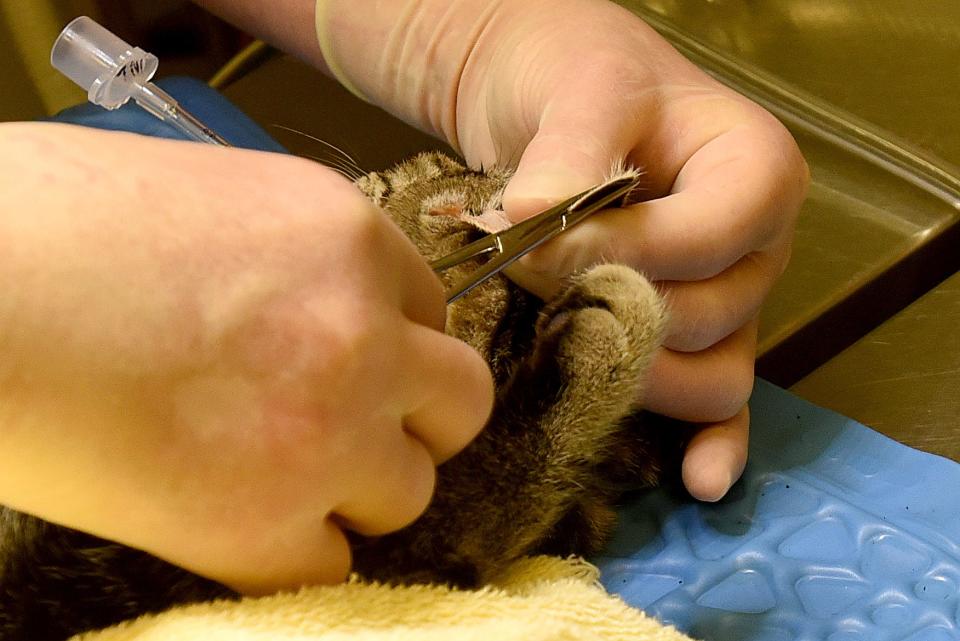No hunting season for feral cat. Doing so would not be practical, legal or safe| Opinion

Joanna Reen is the executive director of Licking County TNR (Trap-Neuter-Release)
Recent comments about community cats at a Licking County commissioners' candidate forums brought much-needed light to the community cat problem in Licking County.
As a community cat advocate, I welcome the attention to a problem affecting the welfare of thousands of cats in Licking County and the people living near them.
From the Archive: Feral cats create a stir at Newark trailer park
A community cat is an outdoor, unowned, free roaming cat. This includes abandoned, lost formerly socialized pets, their offspring, and truly feral cats that have been born in the wild, never socialized to humans. Community cats often depend on people for food and shelter. The people who support these cats are called colony caregivers.
Licking County TNR: Nonprofit seeks help in curbing Licking County's feral cat problem
There is no denying that community cats have an impact on the neighborhoods where they live. Nuisance behaviors (yowling, fighting, urine spraying, flowerbed disruption, sick kittens) negatively affect neighborhoods.
Hungry cats hunt wildlife or raid trashcans. Cats suffer from repeated litters, frostbite, injury, starvation/illness with no access to medical care. This affects the welfare of the cats and people near them.
Recent discussion has centered around a hunting season for community cats. Hunting animals living within municipalities is obviously not practical, legal or safe. Catch/Kill methods to remove community cats have been tried. While this initially reduces cat numbers, the effect is always temporary. The population of cats ultimately rebounds due to the Vacuum Effect where other cats move into newly available territory, continuing to breed at higher rates than before.
'I know we can't go around shooting cats': Licking County prosecutor apologizes
Since 100% of the population cannot be trapped, reproduction continues. Catch/Kill must continue indefinitely.

Trap-Neuter-Release(TNR) is a humane alternative for population management of community cats. Cats are humanely trapped, sterilized, rabies vaccinated, treated for medical issues and ear-tipped (the universal sign of a sterilized community cat).
The cats are then returned to their home territory.
Caregivers manage the colony to minimize the effect of cats on the neighborhood. New arrivals are immediately TNR’ed. A sterilization rate of 75%+ stabilizes the population and colonies shrink over time. Peer reviewed scientific studies show that TNR will stabilize, reduce and even eliminate community cat populations at the local level.
Nuisance behaviors are decreased and hormone/mating behaviors eliminated. Predation on wildlife decreases and sterilization eliminates sick kittens. We have seen colonies in Licking County shrink and extinguish themselves with continued TNR and management.

TNR is only part of the solution. Cat abandonment and low spay/neuter rates continue. The county must develop a plan addressing the issue, including:
Full assessment of the problem and its impact on the community
Funding for community cat management
Accountability for caregivers
Development of low cost spay/neuter resources in Licking County
County sponsored cat sheltering/adoption programs to prevent pet abandonment
How can you help?
Spay/neuter your cat
Keep pet cats indoors
Contact your commissioners. Let them know this issue is important
Vote in local elections
Comments at the candidate forum about community cats have garnered national attention. Licking County is going to be judged on how we handle it. Let’s be sure that reflects the true nature of our county and its residents.
Joanna Reen is the executive director of Licking County TNR (Trap-Neuter-Release)
This article originally appeared on Newark Advocate: Licking County TNR director: How to humanely handle feral cats

